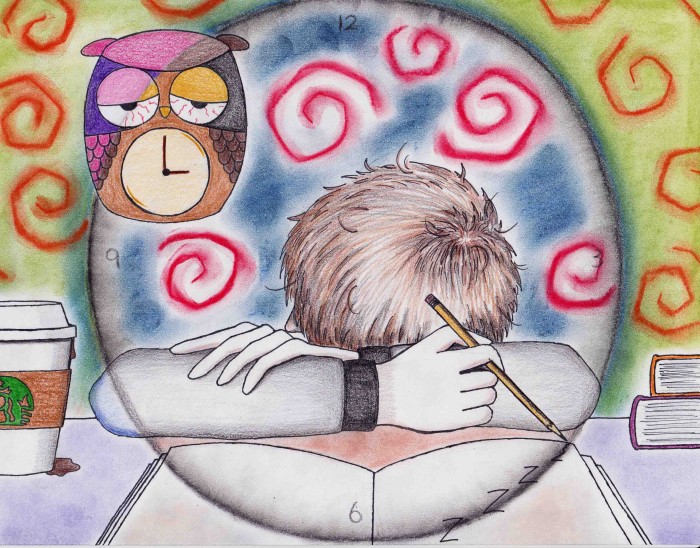It’s a question that has perplexed humanity for centuries. Some of the most prolific thinkers in human history, such as Leonardo Da Vinci, Thomas Edison, and Winston Churchill were said to get by on as few as two or three hours of sleep per night. But can the human brain function optimally without the standard eight hours per night?
Recent studies have found that a gene called DEC-2 allows some individuals to get by on about four hours of sleep per night without any noticeable effects on their health. In a study of sleeping patterns, researchers found a mother and daughter who only needed about six hours of sleep on a day to day basis to maintain normal function, while other family members in the study required eight.
To examine this gene further, researchers genetically engineered mice to have a mutated copy of the DEC-2 gene. These mice required, on average, an hour less of sleep per night when compared to normal mice.
On the surface, sleeping seems like an incredibly evolutionarily disadvantageous strategy. Every hour of sleep is one less hour a hunter-gatherer could spend, well, hunting and gathering; however, as Psychiatry professor Reut Gruber of the Douglas Health Institute explains, sleep has many functions that are beneficial, and often necessary, for health.
“We have empirical data showing that we have to finish some businesses during the night that we cannot do as efficiently during the day,” Gruber explained. “One particular domain in which we have more and more information is cognitive processing. For example, memory consolidation. Our ability to benefit from information processed during the day is maximized if we have the opportunity to sleep on it.”
Sleep also plays a major role in academic performance. Gruber, who studies the effects of sleep on children and adolescents, has found that sleep deprivation results in significantly poorer grades.
“Insufficient sleep and poor sleep efficiency are directly correlated to poor grades,” Gruber said. “We saw [the] greatest deterioration in performance in math and languages; and so if some students think they do something good by pushing through and not sleeping through the night in terms of performing better, although we can’t say where we draw the line, we can say that it is quite the opposite.”
One trend that appeared—particularly among individuals in demanding careers, and new mothers—is the use of polyphasic sleep schedules to maximize productivity. For example, one such schedule called the “Uberman” consists of six 20-minute naps spaced throughout the day. These sleep schedules are inspired by studies of individuals’ sleep patterns in extreme circumstances, such as soldiers on tour as well as sailors in long-distance races, and work by partitioning sleep into several segments spaced throughout the day.
In a study of sailors in long-distance races, race times were minimized when athletes took several 20 minute to one hour-long naps throughout the day, getting on average about four to five hours. Indeed, in extreme circumstances studies like those above show that breaking sleep into multiple naps reduces the effects of sleep deprivation. The effects of polyphasic sleep on individuals in everyday environments have not been studied in great depth, however, so the long-term safety of such a sleep schedule is unknown.
Beyond cognitive performance, sleep also plays a significant role in mental health.
“One thing that we don’t really talk about is the role of sleep in mental health,” Gruber said. “A lot of students struggle with emotional challenges, and it gets much worse when you’re sleep deprived. ”
Although it’s tempting to try to get by on as little sleep as possible, empirical evidence shows that in trying to cheat sleep, students often end up cheating themselves. Gruber’s studies of students in high school and elementary school indicate that getting one or two fewer hours of sleep per night than is necessary results in major decreases in cognitive function, mood, and academic performance.
“Sleep should be prioritized a bit more with competing activities,” Gruber stated. “It’s a question of ‘How do I prioritize my leisure,’ and what should be sacrificed. And maybe if [students] realize the price they pay for [sacrificing sleep and] they’ll be able to make smarter choices.”








